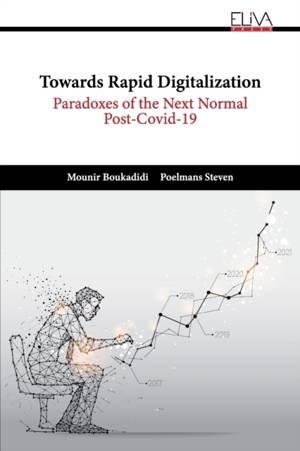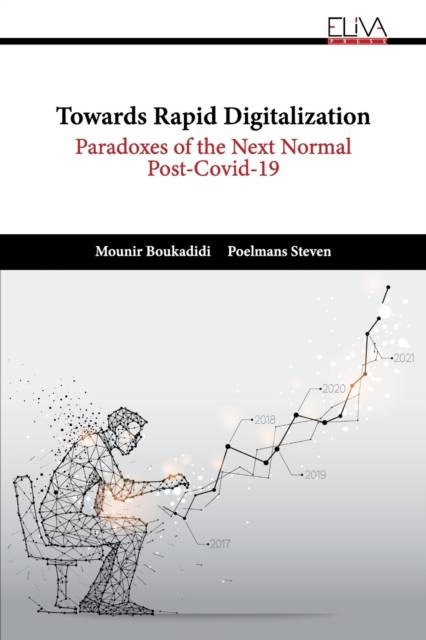
Je cadeautjes zeker op tijd in huis hebben voor de feestdagen? Kom langs in onze winkels en vind het perfecte geschenk!
- Afhalen na 1 uur in een winkel met voorraad
- Gratis thuislevering in België vanaf € 30
- Ruim aanbod met 7 miljoen producten
Je cadeautjes zeker op tijd in huis hebben voor de feestdagen? Kom langs in onze winkels en vind het perfecte geschenk!
- Afhalen na 1 uur in een winkel met voorraad
- Gratis thuislevering in België vanaf € 30
- Ruim aanbod met 7 miljoen producten
Zoeken
Towards Rapid Digitalization
Paradoxes of the Next Normal Post-Covid-19
Steven Poelmans, Mounir Boukadidi
Paperback | Engels
€ 36,95
+ 73 punten
Omschrijving
Covid-19 caused a sudden disruption that pushed firms to urge transformation and digitalize to adapt to the new unprecedented societal changes. Decision makers were facing paradoxes to sustain their businesses, under stress, fear, and urgency. One way to achieve resilience is the adoption of cloud technology, which decision makers used to question. In fact, covid-19 pushed firms to reconsider the way they acquire and use technology. Perceived as a choice for rapid digitalization, cloud computing puts decision makers in a paradoxical situation where acceleration conflicts with data sovereignty. Based on an inductive qualitative research, this paper answers the question of what decision makers do to allow a mindset shift from a traditional way of perceiving technology, to a new concept of technology as a service that is shaped by fear and non-trust. We try to identify what factors shape this mindset shift and how covid-19 influence them. Semi-structured interviews have been used to interview 21 senior executives spread in 15 countries. Themes analysis and analytic hierarchy process (AHP) methodology have been used to analyze data, and finally we propose a conceptual model representing the paradoxes under scrutiny. The research is relevant because we still don't know much about how the concepts of data and technology relate to the challenges imposed by the pandemic, especially in a decision-making context that is characterized by fear and urgency. This paper contributes in shaping academic and practical understanding of the implications on firms' survival, and economic recovery post-covid-19.
Specificaties
Betrokkenen
- Auteur(s):
- Uitgeverij:
Inhoud
- Aantal bladzijden:
- 46
- Taal:
- Engels
Eigenschappen
- Productcode (EAN):
- 9781636483870
- Verschijningsdatum:
- 19/10/2021
- Uitvoering:
- Paperback
- Formaat:
- Trade paperback (VS)
- Afmetingen:
- 152 mm x 229 mm
- Gewicht:
- 77 g

Alleen bij Standaard Boekhandel
+ 73 punten op je klantenkaart van Standaard Boekhandel
Beoordelingen
We publiceren alleen reviews die voldoen aan de voorwaarden voor reviews. Bekijk onze voorwaarden voor reviews.









